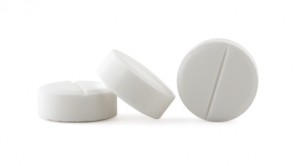FDA Warns of Potentially Lethal Reaction to Seizure Meds
Megan Brooks reports:
“The antiseizure drugs levetiracetam (Keppra, Keppra XR, Elepsia XR, Spritam, generic) and clobazam (Onfi, Sympazan, generic) can cause a rare but serious drug hypersensitivity reaction that can be life threatening if not detected and treated promptly, the US Food and Drug Administration (FDA) warns in an alert issued today.
Known as drug reaction with eosinophilia and systemic symptoms (DRESS), it may start as a rash but can quickly progress and cause injury to internal organs, the need for hospitalization, and death, the FDA notes.
Three cases occurred in the US, and 29 occurred abroad. In all 32 cases, the patients were hospitalized and received medical treatment; in two cases, the patients died.
The median time to onset of DRESS in the levetiracetam cases was 24 days; times ranged from 7 to 170 days. The reported signs and symptoms included skin rash (n = 22), fever (n = 20), eosinophilia (n = 17), lymph node swelling (n = 9), and atypical lymphocytes (n = 4). The median time to onset of DRESS in the levetiracetam cases was 24 days; times ranged from 7 to 170 days. The reported signs and symptoms included skin rash (n = 22), fever (n = 20), eosinophilia (n = 17), lymph node swelling (n = 9), and atypical lymphocytes (n = 4)…. DRESS symptoms resolved when levetiracetam was discontinued.”
Dr. Post’s Recommendations For Treating Youth with Bipolar Symptoms
Our Editor-in-Chief, Dr. Robert M. Post, shares his personal recommendations for the treatment of children and adolescents with symptoms of bipolar disorder. Remember: Patients and family members must consult a physician about all information conveyed in the BNN. With the exception of lithium, none of the medications or supplements discussed above have been approved by the US Food and Drug Administration for use in children under 10. The findings reported here are in many cases preliminary and cannot be taken as recommendations based on the short summaries provided here. All treatment decisions must be made in conjunction with a patient’s treating physician, who is solely responsible for initiating any treatment discussed in the BNN or elsewhere.
In symptomatic and functionally impaired children, medication is almost always necessary. Many treating psychiatrists would start with an atypical antipsychotic, since there is clear evidence of the efficacy of such treatments. The side effects profile should be considered, as there is a considerable difference in the degree of weight gain associated with different atypical antipsychotics. The largest weight gains occur with olanzapine and clozapine, intermediate gains occur with aripiprazole and quetiapine, and the least gains occur with ziprasidone and lurasidone (and the latter has the advantage of being approved by the US Food and Drug Administration for the treatment of bipolar depression in children who are 10–17 years old). The addition of the diabetes drug metformin to decrease weight gain in people taking atypical antipsychotics is increasingly common.
The addition of an anticonvulsant medication (such as lamotrigine, carbamazepine/oxcarbazepine, or valproate) or the mood stabilizer lithium may be needed, as multiple studies indicate that combination treatment is typically needed in children (as in adults) to achieve a more complete response or remission.
Interestingly, oxcarbazepine was effective in younger but not older children with mania in a previous placebo-controlled study by Karen D. Wagner and colleagues published in the American Journal of Psychiatry in 2006.
Conversely, in a 2015 article in the journal JAACAP, researcher Robert Findling reported that in a placebo-controlled study of lamotrigine, 13–17-year-olds responded better than 10–12-year-olds.
Lithium treatment deserves consideration in children with classical presentations of bipolar disorder and those who have family members who have responded well to lithium treatment.
Lithium has the benefit of improving the white matter abnormalities seen in the brains of patients with early-onset bipolar disorder. Hafeman and colleagues reported in a 2019 article that children with bipolar disorder who were treated with lithium had better long-term results upon follow up than those treated with atypical antipsychotics or anticonvulsants.
There is much less scientific consensus about other adjunctive treatments for young people with additional bipolar symptoms and comorbidities, but this editor often uses several. Vitamin D3 is often low in children with psychiatric illness, and may improve mood and cognition.
The antioxidant N-acetylcysteine (NAC) helps depression, anxiety, and irritability, and is effective at treating habit-related behaviors such as trichotillomania (compulsive hair-pulling), obsessive-compulsive disorder (OCD), and drug use, including specifically reducing marijuana use in adolescents. A typical dose is 500–600 mg capsules, one capsule twice a day for one week, then two capsules in the morning and two in the evening thereafter.
Folate or folic acid may enhance antidepressant effects and those of lithium. In patients who have a particular low-functioning variant of a gene known as MTHFR, L-methylfolate is required instead of folate.
The widely-used supplement acetyl-L-carnitine (ALC) is poorly studied in children, but deserves consideration as a supplemental treatment for patients with histories of childhood adversity. In adults with depression, blood levels of ALC may be low, particularly in those with an early onset of bipolar symptoms and a history of childhood adversity (see a 2018 article by Carla Nasca in the journal PNAS). There is a modicum of evidence that ALC produces antidepressant effects in adults. ALC may also sensitize insulin receptors and normalize blood pressure.
There is increasing evidence of the role of inflammation in depression, mania, post-traumatic stress disorder (PTSD), and schizophrenia. Checking for abnormalities in inflammatory markers in the blood (especially Il-6 and CRP) may point the way to appropriate therapy with anti-inflammatory drugs such as minocycline (100 mg twice a day) or celecoxib (200 mg twice a day) in patients who do not respond fully to first-line medications.
Folate Supplements Reduce Autism Rates in Offspring of Women Taking Anti-Epileptic Drugs During Pregnancy
 A 2017 study form Norway suggests that the offspring of women taking anti-epileptic drugs during pregnancy are less likely to develop autism if the women also take folic acid supplements.
A 2017 study form Norway suggests that the offspring of women taking anti-epileptic drugs during pregnancy are less likely to develop autism if the women also take folic acid supplements.
The study by Marte Bjørk and colleagues in the journal JAMA Neurology used data from 104,936 children aged 18 to 36 months. Those whose mothers took anti-epileptic drugs during pregnancy had elevated autism rates, but only if their mothers did not use folic acid supplements. The mothers’ folate levels in weeks 17 to 19 of their pregnancies were inversely related to the degree of autistic traits in their offspring.
Women without epilepsy and women whose epilepsy went untreated during pregnancy had children with similarly low rates of autism to those whose mothers supplemented their anti-epileptic medications with folic acid during pregnancy.
A New Treatment for Disruptive Mood Dysregulation
The 2013 update to the Diagnostic and Statistical Manual of Mental Disorders, or the DSM-5, included a new diagnosis of disruptive mood dysregulation disorder. Children with persistent, severe temper outbursts and irritable or angry moods that are out of proportion to circumstances may be diagnosed with the disorder. However, there is not much specificity to the diagnosis and few treatment studies have been done to help clinicians and parents determine how to manage symptoms of the disorder.
A poster presented at the 2017 Psych Congress reported that a medication protocol consisting of an anticonvulsant drug to stabilize moods and temper outbursts and a dopamine agonist to reduce irritability, impulsivity, and concentration problems reduced rates of re-hospitalization. The retrospective study by researchers D. Matthews and G. Matthews included 91 children and adolescents who were prescribed the anticonvulsant oxcarbazepine and the dopamine agonist amantadine following hospitalization for severe aggression, mood instability, and impulsivity. Those who stuck to the regimen with minimal changes for one year had an 8% re-hospitalization rate compared to a 26% re-hospitalization rate among those who discontinued the regimen or substituted other drugs.
Editor’s Note: Oxcarbazepine has a long-acting preparation, Oxtellar, that can be given all at night.
Amantadine (Symmetrel) not only is a dopamine agonist used for Parkinson’s disease, but is also an antiviral and a blocker of glutamate NMDA channels. It stabilizes the closed state of the NMDA channel.
Adjunctive Topiramate Is Effective In Schizophrenia
 Many patients with schizophrenia do not reach full remission on antipsychotic drugs alone. The anticonvulsant drug topiramate (Topamax) has shown some promise as an adjunctive treatment for schizophrenia. To clarify the results of studies of topiramate, researcher Christoph Correll and colleagues performed a meta-analysis of nine randomized, placebo-controlled clinical trials of the drug. They found that when topiramate was added to antipsychotic treatment, it improved both positive and negative symptoms of schizophrenia, and it also led to reduced weight.
Many patients with schizophrenia do not reach full remission on antipsychotic drugs alone. The anticonvulsant drug topiramate (Topamax) has shown some promise as an adjunctive treatment for schizophrenia. To clarify the results of studies of topiramate, researcher Christoph Correll and colleagues performed a meta-analysis of nine randomized, placebo-controlled clinical trials of the drug. They found that when topiramate was added to antipsychotic treatment, it improved both positive and negative symptoms of schizophrenia, and it also led to reduced weight.
Editor’s Note: Topiramate might also be useful for patients with schizophrenia who have the common comorbidities of alcohol and cocaine abuse, since in other studies of patients with these primary disorders, topiramate was helpful.
Antiepileptic Drugs for Bipolar Disorder Do Not Increase Risk of Suicidal Behavior
![]() A 30-year observational study published by Andrew Leon and colleagues in the American Journal of Psychiatry has found that anticonvulsants used in epilepsy and for bipolar depression (carbamazepine, lamotrigine, and valproate) do not increase suicidal behavior in bipolar patients.
A 30-year observational study published by Andrew Leon and colleagues in the American Journal of Psychiatry has found that anticonvulsants used in epilepsy and for bipolar depression (carbamazepine, lamotrigine, and valproate) do not increase suicidal behavior in bipolar patients.
Editor’s Note: The FDA gave a warning in 2009 that these anticonvulsants were associated with suicidal ideation. This was based on studies of a mixed group of psychiatry and neurological patients in acute placebo-controlled studies, where suicidal ideation is typically a reason for exclusion from the study. Leon et al. used more powerful longitudinal methods to compare the risk of suicidal ideation in individuals taking and not taking anticonvulsants and found no such increase in suicidal behavior.
This is like the FDA warning for antidepressants and suicide, which was based on data from placebo-controlled clinical trials in acute depression (where suicidal patients are excluded). When investigators used the same longitudinal methods as Leon et al. in the anticonvulsant study, they found that antidepressants actually reduced suicidal behavior by 30%.
The bottom line is that the use of anticonvulsants for bipolar disorder should not be discouraged based on the FDA warning about suicidal ideation in mixed neurological and psychiatric patients. In bipolar patients, anticonvulsants do not increase the risk of suicidal behaviors, i.e. suicidal acts or completed suicides.
A Positive Placebo-Controlled Trial of Valproate (Depakote) in Autism
A recent issue of the Journal of Neuropsychopharmacology reported that a placebo-controlled trial of valproate (Depakote) showed the drug is effective in treating irritability in those with autism. Approximately 50% of the participants were less irritable on valproate compared with only about 15% on placebo. Valproate was also generally well-tolerated.
EDITOR’S NOTE: This is a particularly important finding, both for clinical treatment and for its potential theoretical implications. Valproate, in addition to its properties as a mood-stabilizing anticonvulsant that increases brain GABA levels and exerts a variety of other neurobiological effects, is also a histone deacetylase inhibitor.
Anticonvulsant Zonisamide (Zonegran) May Treat Alcohol Abuse
Albert Arias and collaborators from the University of Connecticut Health Center presented a study of zonisamide in which the drug provided significant benefits over placebo in patients with primary alcoholism (i.e., not with comorbid bipolar illness). Treatments began at 100 mg/day and increased to a maximum of 500 mg/day.
EDITOR’S NOTE: If replicated, this study would place zonisamide in a category with topiramate (Topamax), which has also been shown to decrease alcohol intake and craving. Both drugs also share the ability to cause minor weight loss as a potentially positive side effect, and both drugs have also proven effective in double-blind studies in the treatment of bulimia.
However, four double-blind, placebo-controlled studies found that topiramate did not have acute antimanic efficacy. Zonisamide has not been studied in a systematic fashion, but open studies suggest its potential utility in mania and, to a lesser degree, in depression.
Since zonisamide may have positive effects on mood in patients with bipolar disorder, and there is now placebo-controlled documentation of its efficacy in primary alcohol abuse disorders, its ultimate potential utility in patients with bipolar disorder and comorbid alcoholism deserves consideration.



